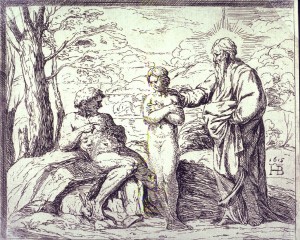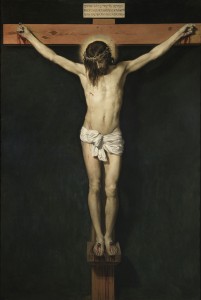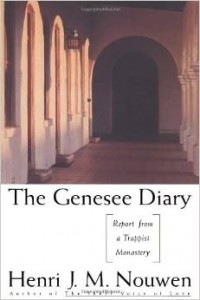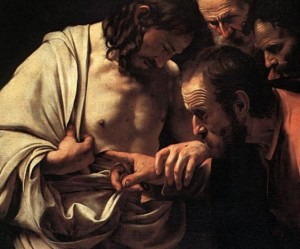It seems crazy, but I’ve recently been thinking about the concept of having a regular hour to pray. When it comes to exercise, reflection, quiet time or personal study time, most of us establish a pattern. Many of us like routines, habits and schedules. And those of us who don’t like schedules realize that with our busy or over crowded lives we have to schedule some things in order to meet the expectations of others.
I’ve come to see prayer as a conversation with the triune God: Father, Son or Jesus and the Holy Spirit or the Spirit of God who lives in our hearts. Unfortunately, I have too often felt or believed that there is a fixed distance between God and me, so I’ve often felt that I was speaking to someone “up there.” You know, “the Man upstairs” or the “King who sits on a throne high and lifted up.” It makes it hard to feel any intimacy with God with those images. But I’ve more recently come to see God as a real father and Jesus as the one that so many people – especially the weak – approached when he walked the streets of Israel’s cities and villages and the Spirit as actually, truly residing in my heart. I’ve come to take the teachings about God in the Bible as actionable. Our re-born bodies are even described as the “temple of the Holy Spirit.”
Needless to say, that has improved my relationship with God in some amazing ways. With the Spirit living with me, I can have an ongoing dialogue instead of always talking to myself like I used to do. I’ve turned the monologue into a dialogue. With the closeness of God being a reality, I now realize that I don’t have to talk ABOUT God when I could be talking to him. I don’t have to try to impress others with my theological depth or saying things in a certain sequence (Jesus called that “piling up empty phrases” in Matthew 6:7), but I can be real and speak directly to God. It’s amazing, but it’s been God’s approach from the very beginning. Like when he used to walk through the garden in the cool of the evening to check in with Adam and Eve. Our relationship was broken, but then Jesus paid the price for our restoration.
Certainly there are enough illustrations in the Bible that would lead us to accept that we can pray most any time and most all the time. Is there also a place for a scheduled time to pray? Do we want to make sure that we not only pray in the quietness of our own souls, but also in community or family?
Although I don’t know how the tradition came about, in first century religious practice there was a “Jewish” or faith community habit of a daily hour of prayer. We first see this in Acts 3 when Peter and John went to the Temple at the hour of prayer, the ninth hour or 3:00 PM. This seems like the perfect time to pray, especially as a community. It is usually a time when we are looking for a second wind for the day. This is a coffee break time for many. It is the break from an after lunch siesta or a short nap in some cultures.
If you try to work at your vocation until 5:00, 5:30 or 6:00 and you are a knowledge worker or even a physical worker, this is a critical time to decide if you’re going to accomplish anything else during today’s work segment. If you are a fulltime parent or caregiver, you may have a different routine. But it is pivotal. It can be a time of temptation or it can be a time of miraculous healing. For Peter and John it was a common activity based upon a desire to connect with each other and with God. But for those who were crippled, it was a time of deep longing for wholeness, for help.
Here’s the story,
Acts 3 Now Peter and John were going up to the temple at the hour of prayer, the ninth hour. And a man lame from birth was being carried, whom they laid daily at the gate of the temple that is called the Beautiful Gate to ask alms of those entering the temple. Seeing Peter and John about to go into the temple, he asked to receive alms. And Peter directed his gaze at him, as did John, and said, “Look at us.” And he fixed his attention on them, expecting to receive something from them. But Peter said, “I have no silver and gold, but what I do have I give to you. In the name of Jesus Christ of Nazareth, rise up and walk!” 7 And he took him by the right hand and raised him up, and immediately his feet and ankles were made strong. 8 And leaping up he stood and began to walk, and entered the temple with them, walking and leaping and praising God. 9 And all the people saw him walking and praising God, 10 and recognized him as the one who sat at the Beautiful Gate of the temple, asking for alms. And they were filled with wonder and amazement at what had happened to him. (ESV)
But for those who were crippled, it was a time of deep longing for wholeness, for help. In some way that applies to all of us. This man was not even expecting healing – perhaps he had given up – but God heard his deepest longing.
Have you given up on the healing of your deepest brokenness? Have you given up on praying at all, but you can still muster a cry for help to people who will listen and help? Even if you can’t bring yourself to pray, ask somebody to pray for you. And if you pray, think about setting a time each day to go with others to the temple.


 od. We live because of God’s actions. This changes the question from, “how do I live for the glory of God?” to “how do I live who I am and who I was created as?”
od. We live because of God’s actions. This changes the question from, “how do I live for the glory of God?” to “how do I live who I am and who I was created as?”

